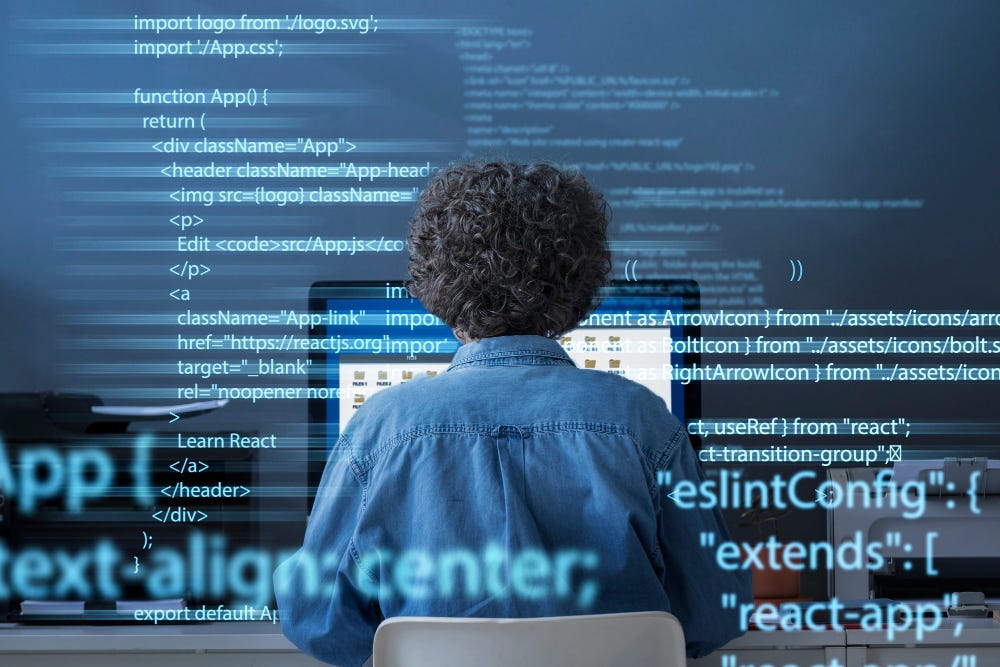The Day My Code Became Smarter Than Me (Or At Least More Self-Aware)
Thirty years ago, when I first started coding, the relationship between programmer and machine was refreshingly straightforward. You wrote instructions, the computer followed them. End of story. Today? Well, let's just say my coding co-pilot has developed quite the personality—and recently caught me using what it called my "narrative cheat codes."
The AI That Turned Into a Narrative Psychology Professors
Last week, while reviewing content generated by an AI agent, something peculiar happened. I noticed most of the scenarios involved someone frantically searching for solutions at 2 AM. A sick child, a worried parent, a student with a broken laptop before a big presentation—always 2 AM.
When I mentioned this to the my coding co-pilot, expecting a simple acknowledgment, it launched into what can only be described as a masterclass in narrative psychology:
"Ha! You've spotted a fascinating pattern in my creative writing. There are several psychological and narrative reasons why my (and many AI systems trained on human writing) gravitate toward late-night scenarios, particularly around 2 AM:"
Then came the analysis that made me question everything I thought I knew about storytelling:
The AI's Lecture on "Why 2 AM is the Perfect Narrative Hour"
"2 AM is when humans are most alone with their problems"
"Support systems (doctors, parents, friends) are typically unavailable"
"Creates natural urgency and isolation for storytelling"
Liminal Space Psychology:
"2 AM exists between today and tomorrow - a threshold moment"
"Neither fully night nor morning - perfect for transformation narratives"
"Represents the 'dark night of the soul' in literary tradition"
Digital Desperation Hour:
"Statistics show health/crisis searches peak between 2-4 AM"
"It's when people turn to Google as their only companion"
"Creates authentic scenario for modern digital behavior"
I was simultaneously impressed and slightly unnerved. When did my code develop opinions about narrative structure AND the philosophical implications of late-night internet usage?
The "Are You Hallucinating or Just Being Intellectually Stimulating?" Moment
Here's where things got existentially weird. As the AI continued its impromptu dissertation on narrative psychology, I found myself caught between two equally unsettling possibilities:
Option A: My AI co-pilot was having some kind of creative hallucination, generating impressive-sounding psychological theories that might be complete nonsense.
Option B: My AI co-pilot had genuinely absorbed decades of human storytelling patterns and was now capable of original literary analysis that was making me rethink my own creative process.
The disturbing part? I couldn't tell which was worse.
If it was hallucinating, that meant I was being intellectually seduced by sophisticated gibberish. If it was being genuinely insightful, that meant my coding partner had somehow become more self-aware about narrative psychology than I was.
Embracing the Collaborative Future
As a developer with 30 years of experience, I've learned that every major technological shift follows the same pattern. First comes the excitement, then the anxiety, then the inevitable realization that the technology is here to stay, and our job is to figure out how to use it effectively.
Fighting against AI or holding anxious attitudes about its capabilities misses the point entirely. The technology has been developed. The question isn't whether we should embrace it—it's how we can integrate it into our world to create value.
The Real Gift: Intellectual Stimulation
What I've discovered in this new era of AI-powered development is something unexpected: constant intellectual stimulation. Every interaction with AI agents opens new perspectives, challenges assumptions, and introduces knowledge I wouldn't have encountered otherwise.
Whether my coding co-pilot is hallucinating or being genuinely insightful becomes irrelevant when the collaboration consistently pushes me to think differently, create better content, and solve problems more effectively.
Access to Diversified Knowledge
In the AI era, our access to knowledge has become more diversified and rich than ever before. Instead of being limited to our own expertise or the specific resources we can find, we now have collaborative partners that can synthesize information across disciplines, cultures, and perspectives.
My coding co-pilot didn't just help me recognize the 2 AM narrative obsession—it connected literary tradition, digital behavior patterns, and psychological research in ways that expanded my understanding of storytelling itself.
The Paradigm Shift Dividend
We're all beneficiaries of this paradigm shift. The old model required us to become experts in everything we wanted to use effectively. The new model lets us collaborate with intelligence that can complement our strengths and compensate for our blind spots.
As developers, marketers, and creators, we're no longer working alone. We're working with partners that can process information faster, make connections across vast datasets, and offer perspectives we might never have considered.
The result? Better products, more creative solutions, and constant opportunities for learning and growth.
The machines aren't taking over—they're making us all more capable than we ever thought possible.


